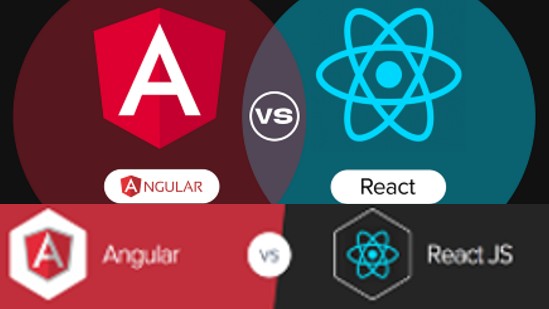
React JS vs. Angular JS: Choosing the Right Framework for Your Web Development
Performance and Scalability: React JS vs. Angular JS
In the dynamic world of web development, two JavaScript frameworks have emerged as giants: React JS and Angular JS. Each has its own strengths and characteristics, making the choice between them a crucial decision for developers. Let's explore the differences and similarities between React JS and Angular JS to help you make an informed decision.
React JS:
-
View Library: React is often described as a JavaScript library for building user interfaces. It focuses on the view layer of an application, making it highly efficient for rendering user interfaces.
-
Component-Based: React is renowned for its component-based architecture, allowing developers to build complex UIs by breaking them down into smaller, reusable components.
-
Virtual DOM: React uses a virtual DOM to optimize updates and enhance performance, ensuring that only necessary parts of the UI are updated.
-
Community and Ecosystem: React boasts a vast and active community, resulting in a wealth of third-party libraries and resources.
-
Flexibility: React doesn't prescribe a specific way of doing things, giving developers more flexibility and choices in terms of tools and libraries.
Angular JS:
-
Full-Fledged Framework: Angular is a complete framework for building web applications. It encompasses not only the view layer but also provides tools for handling routing, state management, and more.
-
Two-Way Data Binding: Angular offers two-way data binding, making it easier to keep the model and view in sync.
-
TypeScript: Angular is built with TypeScript, which is a statically-typed superset of JavaScript. This helps catch errors at compile time.
-
Opinionated: Angular follows a more opinionated approach, providing developers with a clear structure and guidelines.
-
Built-in Features: Angular includes features like dependency injection and end-to-end testing out of the box, reducing the need for external libraries.
Choosing Between React and Angular:
The choice between React and Angular depends on your specific project requirements:
-
React is ideal for projects where you want more flexibility, love the component-based approach, and prefer a vibrant ecosystem.
-
Angular shines in large-scale, enterprise-level applications that require strong architecture, end-to-end features, and a more opinionated framework.
Both React and Angular are powerful tools in their own right, and the decision ultimately comes down to the specific needs of your project and your personal preferences as a developer. Understanding the unique features and characteristics of each framework will help you make the right choice for your web development journey.
Recent Posts
- Basic to Advanced JavaScript & React.js Syllabus
- Gemini Google AI: Your Powerful Multimodal AI Assistant
- Turbocharge Your Downloads: Enabling Parallel Downloading in Chrome
- Cracking the Code: Mastering JavaScript Interview Questions - Top 50 Q&A for Web Developers
- Demystifying MEAN Stack: A Comprehensive Guide to MongoDB, Express.js, Angular, and Node.js